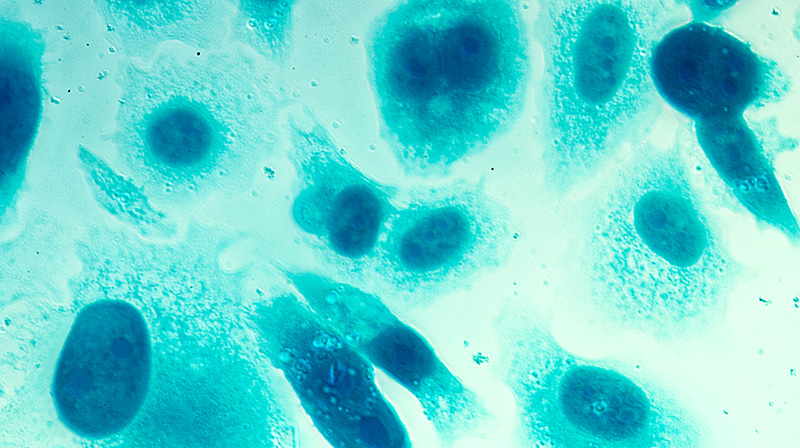Research
10 Mar 2022Meet the women transforming prostate cancer treatments for men everywhere
For International Women's Day, we got into the lab and spoke to some game-changing researchers.

A day in the lab with...
In this fun Twitter thread we see the nuts and bolts of prostate cancer research. Hear about Dr Emma Scott’s work on immunotherapies, get a look at how we test cancer samples and hear how Dr Jennifer Munkley's grandfather's diagnosis made her all the more motivated to improve diagnosis and treatment for men everywhere.
For #IWD2022, we’re in the lab with two of our brilliant researchers, Dr Jennifer Munkley and Dr Emma Scott. (1/15 #thread) pic.twitter.com/JecNy48kX0
— Prostate Cancer UK (@ProstateUK) March 8, 2022
Dr Eileen Parkes on finding out something nobody else in the world knows
Dr Eileen Parkes is a prostate cancer researcher, working on an innovative project that could help make treatments effective for longer. She's looking at treatments that can be combined with radiotherapy to reduce the recurrence of prostate cancer. Dr Parkes said: “By understanding how radiotherapy triggers prostate cancer to hijack the immune system in this way, we hope to find treatments that can stop this from happening and reduce the chances of the cancer returning.” Here she talks about the joy of discovery.
"I just love the sense of discovery."
— Prostate Cancer UK (@ProstateUK) February 11, 2022
Dr @eileen_parkes is working on research that could help make treatments effective for longer.
On International Day of #WomenAndGirlsInScience, we want to say thank you to the female researchers who are helping us stop prostate cancer. pic.twitter.com/ZvxIcVi8VJ
Professor Caroline Moore on the long road to a screening programme
Caroline Moore was the first female Professor of Urology in the UK. Her team at University College London specialise in developing MRI scans to improve diagnosis. She’s an expert in focal treatment and active surveillance.
In our 25 years of Prostate Cancer UK reflection, Professor Moore, Professor Ananya Choudhury, Professor Charlotte Bevan and Professor Johann de Bono share their thoughts about how the world has changed for men with prostate cancer in the last 25 years, and what she hopes to see in the future.
"Looking to the future, the big thing is whether or not we can develop a screening programme that will be both effective and cost effective."
- Prof Caroline Moore
"We don't have one at the moment because the tools used in the last screening study - the combination of PSA and a standard biopsy - weren't good enough. I think as we refine our diagnostic tools, we can try again.
I hope we'll be able to set up a big screening study where we use modern diagnostic methods. That might include MRI, potentially more blood based biomarkers, and risk calculators.
If we could have a screening programme I hope we’d reduce the numbers of men diagnosed with metastatic disease that can’t be cured - currently between 14 and 16% of men. If we could find those men earlier through screening then we'd save many lives, and we'd save a lot of pain and suffering."
Read Professor Moore and other researchers on 25 years of Prostate Cancer UK



